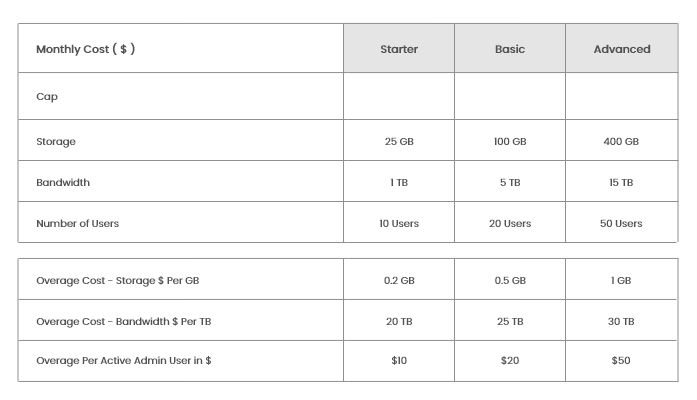



SEO guide: Everything you need to know about keyword difficulty
Here are some explanations of what keyword difficulty means for SEO, and how to use it to improve your rankings...
Keyword difficulty isn't one of the most popular or recent SEO topics or trends. However, once you understand its potential, it is a powerful metric.
It can assist you in making informed decisions about your chances of ranking for specific terms, allowing you to make tactical decisions that support your SEO strategy.
Here's what keyword difficulty means for SEO, and how to use it to get better results.
How does keyword difficulty work?
A metric known as keyword difficulty measures how competitive a keyword is and, consequently, how tough it will likely be to rank for it. It is represented as a number ranging from 1 (very low competition) to 100 (strong competitiveness).
What does the result indicate?
When it comes to SEO, keyword difficulty indicates how challenging it will likely be to rank for a certain keyword compared to how fierce the competition is. The calculation of the complexity or level of competition to rank for a specific term, however, is not standardized.
Various instruments measure it in different ways, and depending on which one you choose, the results can vary greatly.
The majority of tools employ extra metrics in addition to the strength and quantity of referring websites leading to top-ranking search engine results when making their calculations.
Where can you locate it?
A keyword difficulty checker is offered by a wide range of different SEO tools.
It is typically located in a tool's keyword research section and is presented next to the search volume measure with the labels "difficulty," "competition," or "KD".
How important is keyword difficulty?
In and of itself, keyword complexity is neither good nor bad. It is merely knowledge.
Okay, so it's not good if you're launching a brand-new website on a shoestring budget and all of your target keywords are incredibly competitive. That, however, is also fairly poor business planning.
It is absolutely beneficial to understand keyword competitiveness. Understanding how it can benefit you offers you an edge over the competition.
What does a high/low keyword difficulty mean?
A high-difficulty keyword, in general, has a lot of competition, which makes it harder to rank well in the organic search results.
There are probably some well-known brands that score for highly technical phrases.
What is an appropriate keyword difficulty?
The hard part comes at this point. When compared to all the other factors you need to take into account, a "good" keyword difficulty is a sweet spot.
The greatest strategy is to compile all pertinent data, including competition results, and use it all to inform your strategic choices.
Although it's not an easy chore, the more you do it, the more you learn.
Considerations for choosing a relevant keyword
The feasibility of a keyword can be determined by taking into account a number of factors. A balance is struck between the following:
- Search volume.
- The market position of your website right now.
- Your backlink profile's quality.
- The degree to which a term is competitive in comparison to alternative terms that you could target (difficulty).
- The extent to which your material can satisfy search intent.
By weighing these elements, you'll make your decisions.
However, do keywords still matter for SEO?
Today, there is a lot more emphasis on artificial intelligence (AI), machine learning (ML), natural language processing (NLP), and voice search. Even Google Analytics has buried a lot of its term data (not supplied).
Therefore, you may be questioning why it is even worthwhile to spend this much time and effort taking a keyword difficulty score into account.
However, keywords continue to be quite crucial. You may learn more about what and how your target market is looking for by conducting this kind of research.
This can occasionally be hilarious, surprising, and interesting. When we search, there is no filter since our level of anonymity enables us to pose open-and-shut inquiries.
Additionally, it tells you what your rivals consider to be significant and how you might be able to outwit them or recognize an opening they haven't.
You can find new chances for products, product lines, or content by using keyword research.
You risk missing out on emerging trends that initially provide reduced difficulties since the competition hasn't caught up if you don't frequently check what people are searching for.
Understanding your market in the SERPs is a stage you should never skip. How you develop good, useful, and authoritative content to satisfy these searches is a different question.
A targeted keyword list serves as the foundation of your overall strategy and aids in keeping your eyes on the opportunities.
How to Find Keywords with Low Difficulty
To locate keywords with less competition, you can filter or sort any dataset according to keyword difficulty.
But here are a few techniques you might possibly attempt if you wish to start your search by looking for keywords that are simpler to rank for:
Including search criteria
Add qualifiers to your broad search to narrow it down. To limit the selections, you can add terms like "for," "to," and "vs." More precise sentences will be given to you, and the difficulty level will typically be lower.
In search of the long tail
Long-tail queries, by definition, are more precise, specific, and have less competition.
Because their search numbers are lower, long-tail keywords frequently have some low-hanging fruit.
Staying ahead of the curve
Look for fresh areas of interest in your field using tools like Google Trends, Pinterest Trends, and Exploding Topics.
If you spot these early on, the competition is likely to be lower. But there's always a risk here.
What is the significance of keyword difficulty?
There are numerous reasons why keyword difficulty is an important parameter in SEO:
It's calculated.
The complexity of keywords is critical because it allows us to think strategically. As time-pressed SEOs, we want to make the greatest possible effect with our efforts.
Understanding the competition in the SERPs quickly and efficiently can be really beneficial.
It assists us in making numerous selections.
Based on the level of competition, we can decide whether to put in a lot of or little work to create fresh material.
We can choose not to spend any resources attempting to rank well for specific keywords and instead establish a reputation for highly competitive product lines through other ways such as PPC, email, or other kinds of advertising.
We have the option of focusing our efforts on-page or off-page.
It enables us to make better use of our limited resources.
Keyword difficulty, when employed as part of our approach, allows us to work smarter, not harder.
It's a statistic that allows us to swiftly narrow down enormous amounts of data and grasp our opportunities.
Hocalwire CMS includes fantastic automation features that help traffic from various sources focus on your website. You may drastically increase your traffic with the aid of Google Analytics and potential choices with Hocalwire. To learn more about Hocalwire CMS's limitless potential, schedule a demo.

